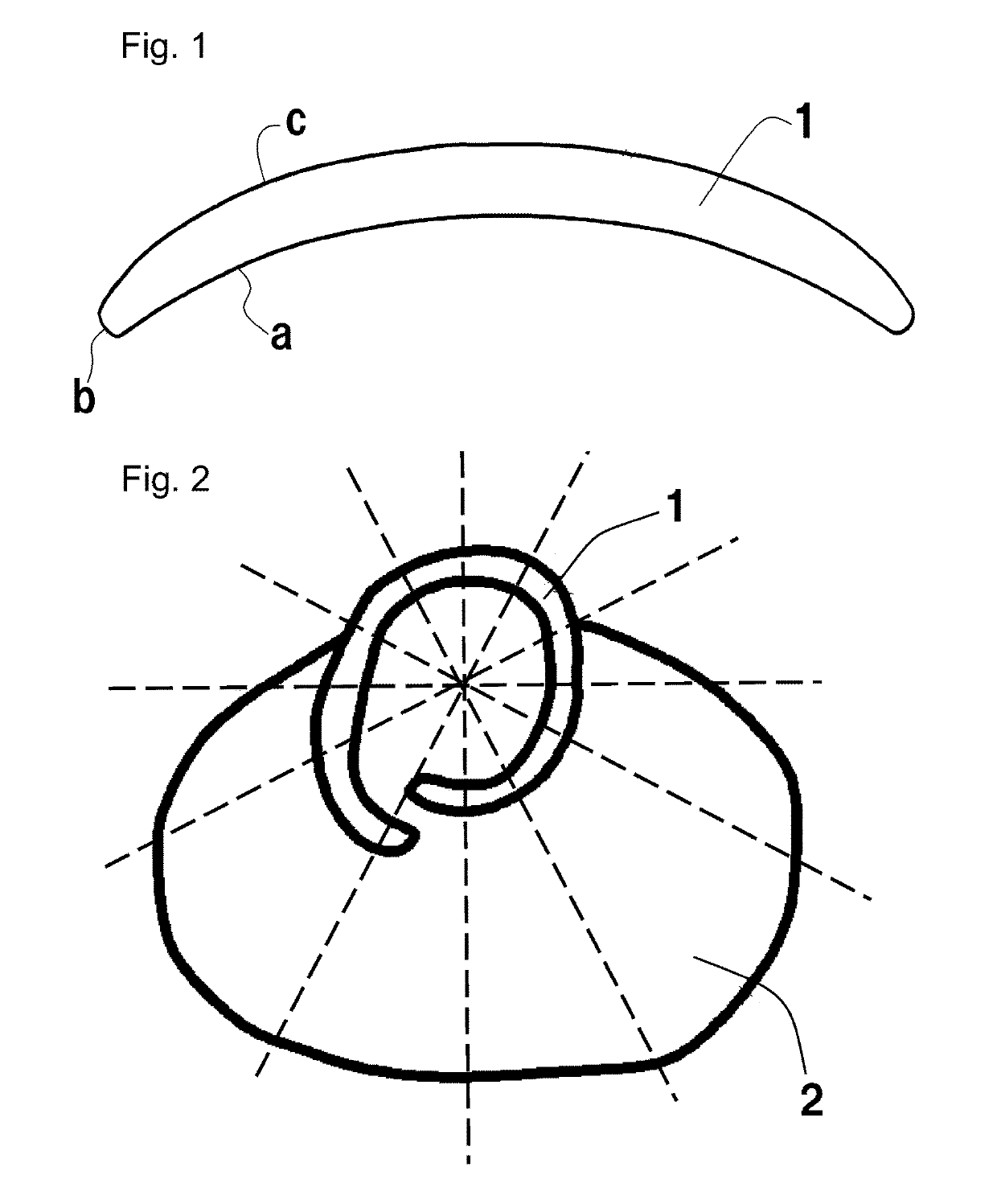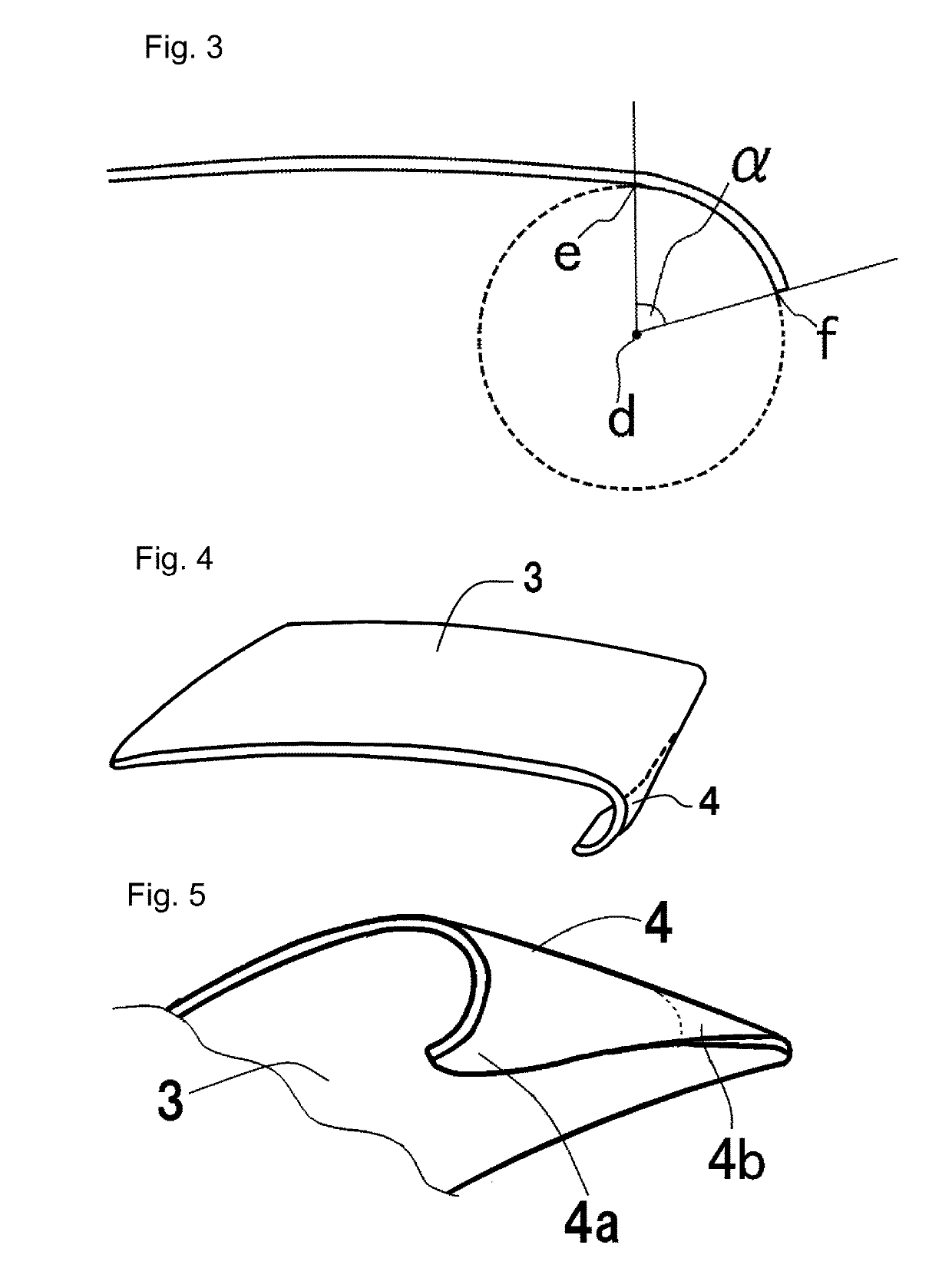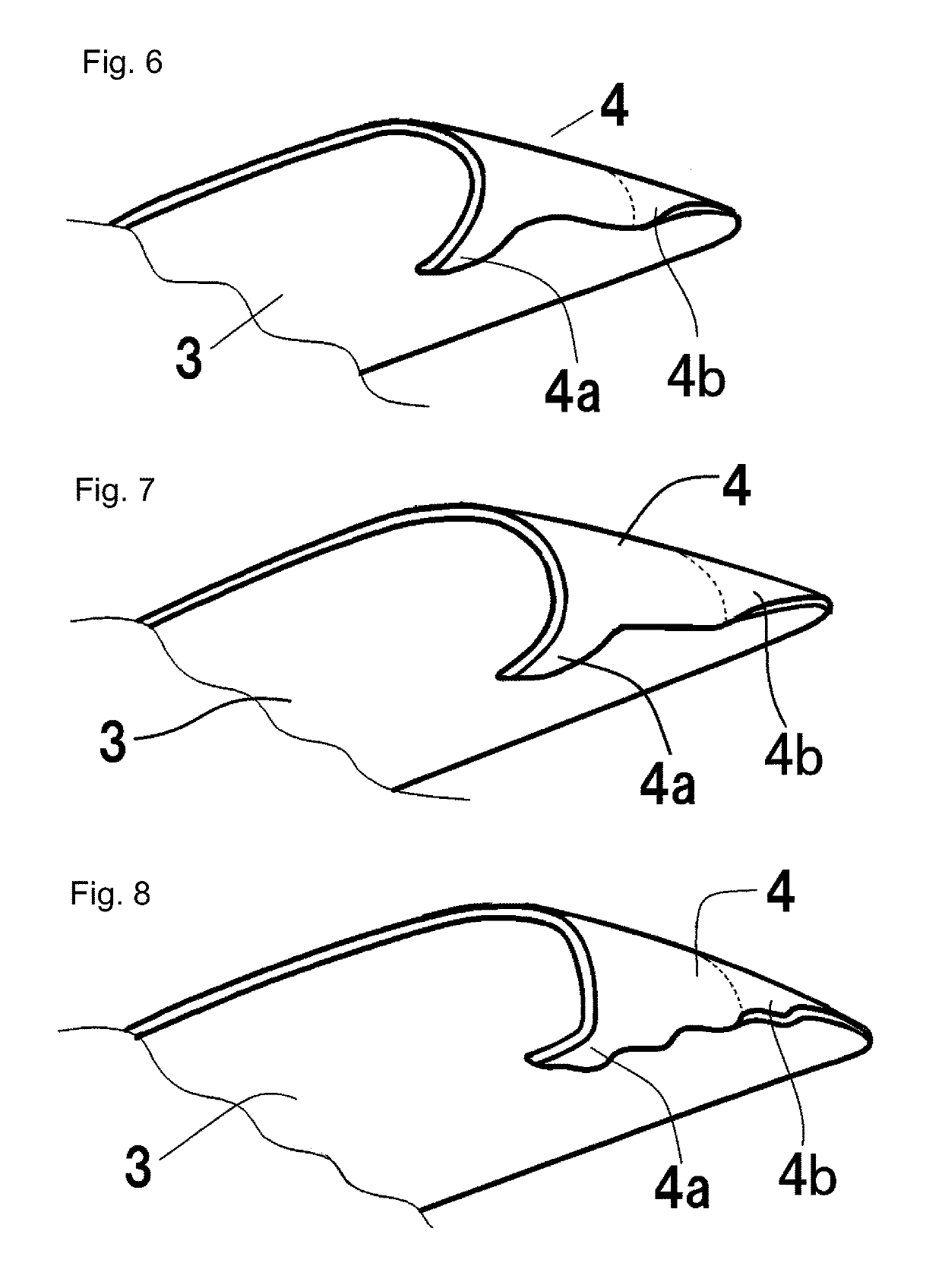Deformed nail corrector
a nail corrector and nail technology, applied in the field of deformed nail correctors, can solve the problems of inability to give pain to patients, inability to use the surgical operation with ease, and inability to prevent so as to prevent the deformation of the nail without giving pain to the patien
- Summary
- Abstract
- Description
- Claims
- Application Information
AI Technical Summary
Benefits of technology
Problems solved by technology
Method used
Image
Examples
example 1
[0141]The treatment for correcting the ingrown nail was applied to a female patient of 79-year-old by using the corrector made of polycarbonate and having a shape shown in FIG. 4.
[0142]1. Dimension of the Corrector
[0143]A length of the band-shaped central region 3 measured along the direction crossing the longitudinal direction of the nail: 15 mm
[0144]A width of the band-shaped central region 3 measured along the longitudinal direction of the nail: 5 mm
[0145]A thickness of the band-shaped central region 3: 0.5 mm
[0146]A length of the hook portion 4a (distance measured along the width direction of the nail from the border between the hook portion 4a and the band-shaped central region 3 to the tip of the hook portion 4a): 2 mm
[0147]A width of the hook portion 4a measured along the longitudinal direction of the nail: 3 mm
[0148]A width of the screw impeller-shaped portion 4b measured along the longitudinal direction of the nail: 2 mm
[0149]A rate of the width of the screw impeller-shaped...
example 2
[0157]The treatment same as the example 1 was applied to a male patient of 72-year-old.
[0158]FIG. 11A shows a state of the ingrown nail before the correction treatment, and FIG. 11B shows a state after the correction treatment. Also in this example, same as the example 1, serious ingrown nail was efficiently corrected in a short time. Same as the example 1, the patient didn't feel uncomfortable and pain during the correction treatment.
PUM
 Login to View More
Login to View More Abstract
Description
Claims
Application Information
 Login to View More
Login to View More - R&D
- Intellectual Property
- Life Sciences
- Materials
- Tech Scout
- Unparalleled Data Quality
- Higher Quality Content
- 60% Fewer Hallucinations
Browse by: Latest US Patents, China's latest patents, Technical Efficacy Thesaurus, Application Domain, Technology Topic, Popular Technical Reports.
© 2025 PatSnap. All rights reserved.Legal|Privacy policy|Modern Slavery Act Transparency Statement|Sitemap|About US| Contact US: help@patsnap.com



